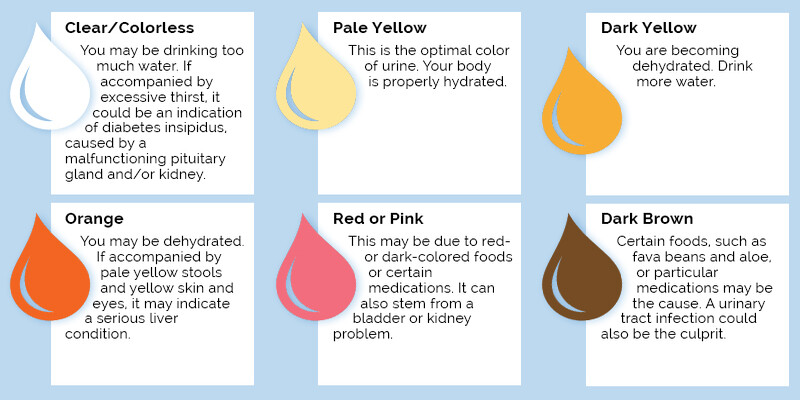Are you feeling increasingly overwhelmed and stressed out? Have you been struggling to find a sense of balance between work, family life, and your well-being? These are often signs that your mental health is deteriorating. It could indicate a more serious condition known as a nervous breakdown.
A nervous breakdown can manifest in physical and psychological symptoms, which, if left untreated, can have long-term effects on your ability to manage various aspects of day-to-day living.
In this blog post, we will discuss the signs, symptoms, and causes of a nervous breakdown to help you identify if it might be something that is happening with you or someone close to you so appropriate steps can be taken for recovery.
Excessive anxiety or fear
Excessive anxiety and fear are common symptoms of a nervous breakdown. They can manifest as feelings of panic, dread, or terror that can come on suddenly or be constant throughout the day. This could interfere with your daily activities and make functioning difficult.
Some people may also experience physical symptoms such as trembling, sweating, nausea, or difficulty breathing. It is important to note that these symptoms can be serious and should not be ignored. If you are experiencing excessive anxiety or fear, it is important to seek professional help.
Depression
Depression is a common symptom of a nervous breakdown and can manifest as feelings of sadness, hopelessness, or emptiness. People may feel in constant despair and can no longer enjoy activities that used to bring them joy. They may have difficulty sleeping, eating, or concentrating on tasks. People experiencing depression should seek help from a mental health professional as soon as possible.
Panic attacks

Difficulty concentrating and emotional overload are just a few symptoms of a nervous breakdown. A nervous breakdown is an intense period of overwhelming stress that may cause you to be unable to function in your daily life. Although there isn’t a specific medical diagnosis for having a nervous breakdown, it can include feelings like extreme anxiety, fear, panic, depression, and hopelessness.
Other symptoms of a nervous breakdown may include fatigue, an inability to concentrate, irritability, changes in sleep patterns or appetite, physical pain such as headaches or stomachaches, self-destructive behavior like drug or alcohol use, and difficulty dealing with everyday tasks.
It’s important to recognize the signs of a nervous breakdown and to seek help if you’re experiencing any of these symptoms.
A mental health professional can help you identify the underlying cause of your distress and create a treatment plan to get through this difficult period. Treatment may involve counseling, medication, or support groups. Proper care and effective coping strategies make it possible to recover from a nervous breakdown and regain control of your life.
Difficulty concentrating
One of the earlier symptoms of a nervous breakdown is difficulty concentrating. This can manifest in many ways, including having trouble staying focused on tasks or conversations, getting easily distracted, and being unable to remember information that was just read or heard.
Difficulty concentrating can extend beyond daily activities, such as struggling to comprehend complex topics or feeling overwhelmed by problem-solving tasks. These issues can disrupt work and personal life, affecting daily functioning.
If you are having difficulty concentrating, consider seeking help from a mental health professional to learn how to manage your stress levels and better cope with feelings of distress. Therapy, medication, or lifestyle changes may be recommended depending on the severity of your symptoms.
Feeling overwhelmed and confused
When suffering from a nervous breakdown, individuals may feel overwhelmed and confused. This can lead to difficulty concentrating, making decisions, or remembering things. It can also be accompanied by sadness, guilt, and despair. Other symptoms of feeling overwhelmed include exhaustion, insomnia, and feeling helpless and out of control.
Extreme changes in behavior or mood
A nervous breakdown can manifest itself through behavioral and emotional changes. These include sudden shifts in personality, sudden rage for no reason, agitation, extreme anxiety, or feeling overwhelmed by seemingly mundane tasks.
Additionally, people experiencing a nervous breakdown may have difficulty concentrating and focusing on everyday activities. They may also experience feelings of worthlessness and guilt that the individual cannot explain.
Difficulty with interpersonal relationships
People experiencing a nervous breakdown may have difficulty interacting with others daily. This may include problems with communication and erratic behavior or outbursts during conversations. They also might withdraw from previously close relationships, such as spouses or family members, and feel the need to be alone.
Changes in sleeping habits

Sleeping patterns may also change when one is having a nervous breakdown. This could include difficulty falling asleep or staying asleep throughout the night and experiencing excessive daytime sleepiness. An individual experiencing a nervous breakdown might also nap during the day or have difficulty waking up in the morning.
Changes in eating habits
Changes to an individual's eating habits are also common during a nervous breakdown. This could include drastically increased or decreased food intake, changes in appetites, or having difficulty focusing on meals and enjoying food. People experiencing a breakdown may also experience significant weight loss or gain due to changes in their eating habits.
If you are experiencing any of the symptoms mentioned above, it is important to seek professional help as soon as possible. A mental health provider can help you assess your current mental state and work with you on developing a care plan that best fits your needs.
FAQs
What happens during a nervous breakdown?
In the late 19th century, a nervous breakdown was an obsolete term to describe a severe episode of mental distress. It can cause intense sadness and despair, difficulty concentrating or making decisions, insomnia, changes in eating habits, and difficulty interacting with others.
How do I know if I'm having a nervous breakdown?
Potential signs of a nervous breakdown include feeling overwhelmed by distress, difficulty concentrating, sudden shifts in personality or mood, changes in sleeping or eating habits, and withdrawal from close relationships. If any of these symptoms are present, it is important to contact a mental health professional as soon as possible.
What should I do If you think you may be experiencing a nervous breakdown?
It is important to seek help from a mental health professional. A therapist or doctor can assess your current mental state and develop an individualized plan of care to provide the support that best fits your needs.
Conclusion
After considering the symptoms of a nervous breakdown, it is essential to seek help if any of these feelings or symptoms occur. Fortunately, there are steps one can take to effectively manage their mental health and reduce the risk of a breakdown. Seeking professional medical advice from a medical practitioner or counselor is one way to combat these feelings and acquire the tools needed for recovery.







